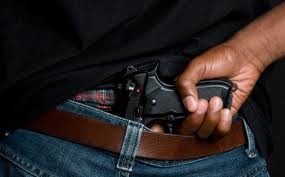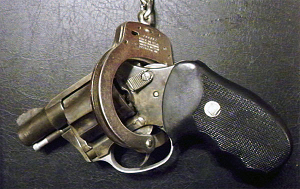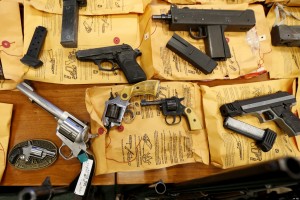 While the 2nd Amendment to the Federal Constitution protects the individual right to own firearms, that right is not unlimited. There are laws that regulate when and how we can use those firearms. Due to high volumes of violence related to guns, many states have cracked down against violators of gun laws. Some states have laws that carry mandatory sentencing for specific firearm possession crimes. California has laws that require different sentences based on the defendant’s background, their mental condition, circumstances regarding to the crime, and/or prior convictions.
While the 2nd Amendment to the Federal Constitution protects the individual right to own firearms, that right is not unlimited. There are laws that regulate when and how we can use those firearms. Due to high volumes of violence related to guns, many states have cracked down against violators of gun laws. Some states have laws that carry mandatory sentencing for specific firearm possession crimes. California has laws that require different sentences based on the defendant’s background, their mental condition, circumstances regarding to the crime, and/or prior convictions.
Possession of a firearm has many specifications and is a complex matter. Even though there a basic laws that apply to these gun policies, someone’s violation could quickly change from a misdemeanor to a felony on the basis of the person’s location, background, intention, and situation context. For Instance, it is illegal for someone to flaunt or waive a firearm in an angry or threatening manner or during a fight. This person may be charged with a misdemeanor. Carrying out this same action in a car could possibly be a felony. Of course, the District Attorney and Judge will look at specifics when determining how to sentence someone.
 The most common violation is carrying a firearm without a permit. At least 13 states generally require someone to have a permit, license, or other certificate to purchase or possess a handgun. Assuming the person is not a felon, or mentally disabled, this violation is generally a misdemeanor criminal charge. Misdemeanors carry a sentence of up to one year in jail. In California, purchasing a handgun without a safety certificate is a misdemeanor, punishable by up to six months in jail and/or up to $1,000 in fines.
The most common violation is carrying a firearm without a permit. At least 13 states generally require someone to have a permit, license, or other certificate to purchase or possess a handgun. Assuming the person is not a felon, or mentally disabled, this violation is generally a misdemeanor criminal charge. Misdemeanors carry a sentence of up to one year in jail. In California, purchasing a handgun without a safety certificate is a misdemeanor, punishable by up to six months in jail and/or up to $1,000 in fines.
Another common violation is minors under the age of 18 possessing a firearm. While other states vary, California has a minimum age requirement of 18 years for people who possess a firearm. This violation is considered a misdemeanor and is punishable by up to six months in jail and/ or a fine of up to $1,000.
Federal law generally prohibits convicted felons from possessing firearms. Although most states also carry this guideline, in some states, the prohibition applies only to certain types of felonies.
 Penal Code 12021 PC prohibits convicted felons from purchasing, owning, receiving, or possessing a firearm. This section also describes certain misdemeanors that also carry these constraints, as well as people with mental disabilities or drug addictions. Violation of these laws are considered felonies, punishable by 16 months-three years imprisonment, a fine, or both.
Penal Code 12021 PC prohibits convicted felons from purchasing, owning, receiving, or possessing a firearm. This section also describes certain misdemeanors that also carry these constraints, as well as people with mental disabilities or drug addictions. Violation of these laws are considered felonies, punishable by 16 months-three years imprisonment, a fine, or both.
Different penalties apply to different circumstances. Higher penalties can result in some circumstances (such as repeat offenders or aggravating circumstances.)
Possession of a firearm can be a serious charge. Hiring an experienced criminal defense attorney to walk you through this process is crucial. If you are facing firearm charges, contact our office today at (619) 238-1905 for a free 30-minute consultation.


